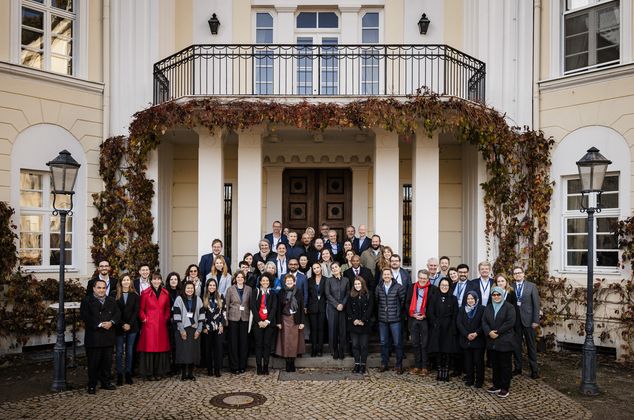The commitment of the GPDPD at UN level
Greater emphasis on development aspects in global drug policy
The United Nations Commission on Narcotic Drugs (CND) is the global forum for the discussion of government interventions in the area of drug policy. The GPDPD on behalf of the Federal Ministry for Economic Cooperation and Development (BMZ) has helped to shape the CND’s debates through resolutions, conference papers and numerous side events and receptions since 2015. A greater emphasis on development issues in global drug policy is the result of these efforts.
Every year, the United Nations Commission on Narcotic Drugs (CND) brings together more than 2500 experts over several days to discuss joint measures in the field of international drug policy. On behalf of the Federal Ministry for Economic Cooperation and Development (BMZ), the Global Partnership on Drug Policies and Development (GPDPD) works within the CND to promote a policies that take a holistic view of the global challenge and tackles the causes. It places the approach of Alternative Development, public health and respect for human rights on the United Nations’ (UN) drug policy agenda.
The German delegation is headed by the Commissioner of the Federal Government for Drug and Addiciton Policy. Since drug policy influences many other policy areas, several different ministries are represented in the delegation. The BMZ, represented by the GPDPD, also attends the annual sessions of the CND so as to contribute aspects of development policy and to negotiate resolutions, including on rural development in drug cultivation regions. Since 2016, Germany, together with other countries such as Thailand and Peru, has tabled resolutions on alternative development in order to discuss new findings and challenges in the implementation of this approach internationally.
The CND...
- was established in 1946 and is the UN’s central drug policy-making body with 53 member countries;
- plays a key role in the design and coordination of drug policy between member countries; adopts resolutions on specific issues relating to drug policy in which it often sets out recommended courses of action for national drug control authorities;
- decides which psychotropic substances are subject to control by the international drug control regime;
- holds annual sessions in March at the United Nations Office on Drugs and Crime (UNODC) in Vienna.

The CND is also used to prepare the UN General Assembly’s pioneering declarations on drug policy. For instance, the Outcome Document of the 2016 United Nations General Assembly Special Session on the World Drug Problem (UNGASS 2016) was negotiated at the CND. Germany played a vital role in structuring and formulating this document and was able to incorporate a separate section on development-oriented approaches to drug policy. GPDPD helped to shape this process.
The 2016 UNGASS Outcome Document also included a section on human rights in drug policy for the first time. Respect for human rights is a core element of German development policy and a basic principle of the German Government’s drug policy. On behalf of BMZ and in cooperation with the United Nations Development Programme (UNDP) and the Swiss Federal Department of Foreign Affairs, the GPDPD supported the International Centre on Human Rights and Drug Policy at the University of Essex in drawing up the International Guidelines on Human Rights and Drug Policy. These guidelines were launched during the 2019 session of the CND in Vienna. They were, and continue to be, something entirely new in international drug policy.
Between 2015 and 2018, the GPDPD organised numerous side events on the occasion of the CND. In addition to the official conference, these events provide countries with the opportunity to present challenges which they face either on a national level or together with partner governments, as well as approaches to solving issues relating to drug policy. For example, the most recent scientific findings in the field of Alternative Development were presented at GPDPD events, together with the UNODC research department. Furthermore, the German concept of harm reduction was also presented at several side events and receptions. Here, the benefits of health-oriented approaches to addressing drug use were demonstrated in order to convince more countries of the effectiveness of harm reduction measures. In 2018, Germany submitted a conference room paper to the CND examining the challenges posed by the global increase in stimulant drug use and setting out effective measures to reduce harm when using these stimulants. The fact that greater emphasis is being placed on pro-development and health-oriented issues in global drug policy is thanks to many years of endeavour.



